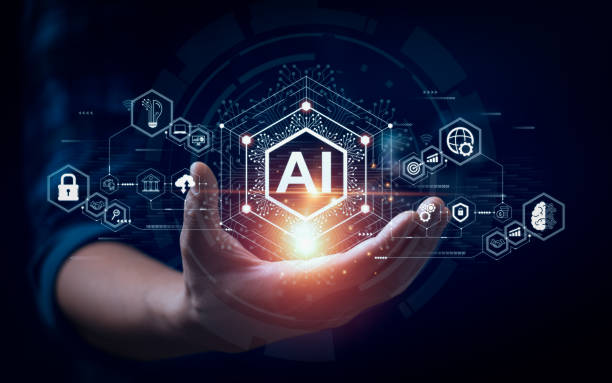Pros and Cons of AI: Unveiling the Duality of Artificial Intelligence

Introduction
Artificial intelligence (AI) has emerged as a transformative force in the world, revolutionizing industries and changing the way we live and work. It holds the promise of making our lives more convenient and efficient, but it also raises concerns about the potential risks and ethical dilemmas it poses. In this comprehensive article, we will delve into the pros and cons of AI, exploring the multifaceted nature of this technology and its impact on society.
The Pros of AI
1. Enhanced Efficiency and Productivity
One of the most significant advantages of AI is its ability to enhance efficiency and productivity across various sectors. AI-powered automation can perform repetitive tasks more quickly and accurately than humans. This results in time and cost savings for businesses, allowing employees to focus on more strategic and creative endeavors.
2. Improved Decision-making
AI systems excel at processing vast amounts of data and extracting valuable insights. This capability empowers organizations to make data-driven decisions, leading to improved outcomes in fields like finance, healthcare, and marketing. AI can analyze historical data, identify trends, and make predictions, aiding in risk assessment and strategic planning.
3. Personalized User Experiences
AI is at the heart of personalized experiences, whether it’s Netflix recommending movies, Amazon suggesting products, or Spotify curating playlists. Machine learning algorithms analyze user behavior and preferences, tailoring content to individual tastes. This enhances user satisfaction and engagement, which is invaluable in today’s digital landscape.
4. Healthcare Advancements
AI is revolutionizing the healthcare industry in various ways. It can analyze medical images, such as X-rays and MRIs, with high accuracy, aiding in early disease detection. Chatbots and virtual nurses provide 24/7 support and information to patients. Additionally, AI can predict disease outbreaks and monitor public health trends, contributing to disease prevention and management.
5. Enhanced Customer Service
Chatbots and virtual assistants are becoming increasingly proficient at handling customer inquiries. They are available 24/7, reducing response times and improving customer satisfaction. AI-driven sentiment analysis also helps businesses gauge customer feedback and sentiments, enabling them to make necessary improvements.
6. Environmental Impact
AI can be a powerful tool for addressing environmental issues. It optimizes energy consumption, making buildings and transportation more eco-friendly. Additionally, AI helps monitor and predict climate change, aiding in disaster management and mitigation efforts.
7. Education and Skill Enhancement
AI-powered educational tools offer personalized learning experiences, adapting to individual students’ strengths and weaknesses. Moreover, AI can identify gaps in knowledge and suggest appropriate learning resources, making education more accessible and effective.
The Cons of AI
1. Job Displacement
The rapid adoption of AI and automation can lead to concerns about job displacement. Tasks once performed by humans are increasingly being automated, which may lead to unemployment and income inequality in certain industries. The need for retraining and upskilling is essential to mitigating these effects.
2. Data Privacy Concerns
AI relies heavily on data, and the collection and analysis of personal data raise significant privacy concerns. Data breaches and misuse of information can result in identity theft, financial loss, and violations of personal privacy. Stricter regulations and ethical guidelines are necessary to safeguard individuals’ data.
3. Bias and Discrimination
AI systems are not immune to biases. If trained on biased data, they can perpetuate and even exacerbate societal biases. For example, AI used in hiring processes might inadvertently discriminate against certain demographic groups. Ongoing efforts to develop fair and unbiased AI algorithms are crucial.

4. Security Risks
AI can be exploited for malicious purposes, posing security risks. Hackers can use AI to launch sophisticated cyberattacks, and AI-driven deepfake technology can create convincing forgeries. To counter these threats, the development of robust cybersecurity measures is essential.
5. Ethical Dilemmas
As AI technology becomes more advanced, it raises ethical questions. For instance, autonomous vehicles must make split-second decisions in life-or-death scenarios. Who is responsible for these decisions—the programmer, the manufacturer, or the AI itself? These ethical dilemmas require thoughtful consideration and regulation.
6. Dependency on Technology
Overreliance on AI can lead to a loss of essential human skills. As AI systems take over more tasks, individuals may become less proficient in areas such as problem-solving, critical thinking, and manual labor. Balancing the use of AI with the preservation of human skills is a challenge.
7. Lack of Accountability
When AI systems make mistakes or cause harm, assigning accountability can be complex. Unlike humans, AI lacks a moral compass and intention. Determining who should be held responsible for AI-related errors is an ongoing legal and ethical challenge.
Conclusion
Artificial intelligence is a double-edged sword, offering immense benefits and posing considerable challenges. Understanding the pros and cons of AI is crucial for harnessing its potential while mitigating its risks. As AI continues to evolve, it is essential for society to strike a balance between innovation, ethical considerations, and human well-being. Through responsible development, regulations, and thoughtful use, we can maximize the benefits of AI while minimizing its negative impacts. The future of AI lies in our hands, and our decisions today will shape the world of tomorrow.
- Unlocking the Secrets: How to Become a Successful YouTuber - March 17, 2024
- Unlocking the Power of Home Loan Calculators: A Comprehensive Guide - March 9, 2024
- Understanding Dementia: A Comprehensive Guide - March 7, 2024






